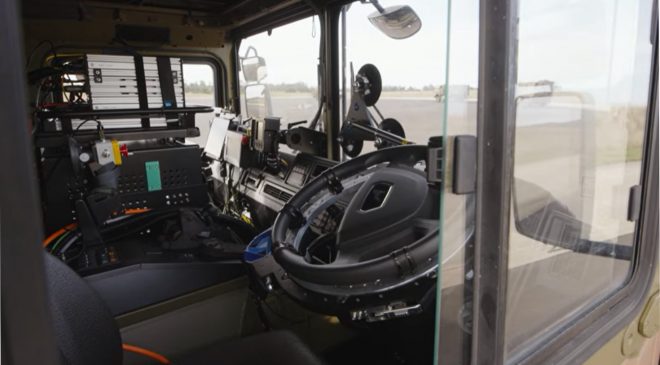
Providing distributors and retailers with a secure mobile experience for managing orders and deliveries.
A $3.5 million Australian Army project to develop a convoy of autonomous trucks that use technology to follow the leader has passed a key milestone by successfully completing a series of road trials.
The autonomous leader-follower vehicle technology, using modified Land 121 40M cargo trucks, was developed under a contract between the Institute for Intelligent Systems Research and Innovation (IISRI) at Deakin University, and Army’s Robotic and Autonomous Systems Implementation and Coordination Office (RICO).
The trials took place over a two-week period at Defence’s Trials and Proving establishment at Monegeetta, Victoria, and involved a five-vehicle convoy.
Minister for Defence Industry Melissa Price said the development of robotic and autonomous systems were vital to meeting Australia’s future operational challenges, including for humanitarian assistance and disaster relief, and in combat operations.
“The completion of this assessment within one year of the allocation of the funding demonstrates the strong industry and Defence partnerships in experimentation, prototyping and exploration of autonomous vehicle and new technologies,” Minister Price said.
“These technologies are ‘disruptive technologies’ that provide marked advantages on the modern battlefield by bolstering ADF capability while protecting Australian personnel.
“This is exactly the type of capability that the Morrison Government announced in the four new Sovereign Industrial Capability Priorities which will help to build a robust, resilient and internationally competitive defence industry in Australia.”
Army, through RICO, continues to work with IISRI and the Australian Road Research Board on the potential transfer of the capability testing onto public roads with further refinement, performance enhancement and understanding of road rules.
“There are a number of technical and regulatory challenges to address to get these platforms into common use,” Minister Price said.
“The ongoing efforts will enable Army to navigate these challenges.”
The use of advanced and networked technologies on the battlefield is increasing and future warfighting is expected to centre on human-machine teams both in the physical and virtual sense. Army’s Robotic and Autonomous Systems (RAS) strategy articulates how Army aspires to ethically leverage emerging technology such as Artificial Intelligence (AI), autonomy and robotics as they mature to gain asymmetric
advantage.
RAS covers a wide range of inter-connected technologies including un-crewed ground systems, aerial systems, AI, selflearning machines, and systems more able to make sense of their environment.




